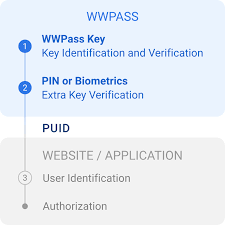The Importance of Identity Management in the Digital Age

The Importance of Identity Management in the Digital Age
In today’s increasingly digital landscape, managing identities is more crucial than ever. As organizations, large and small, move more of their operations online, the focus on Identity Management www.wwpass.com identity management is becoming paramount. This article delves into what identity management entails, its significance, the challenges faced, and best practices for implementation.
Understanding Identity Management
Identity Management (IdM), also known as Identity and Access Management (IAM), refers to the processes and technologies used to manage and secure access to resources within an organization. This includes the management of user identities, authentications, authorizations, and the policies that govern access control. At its core, identity management aims to ensure that the right individuals have the right access to the right resources at the right times for the right reasons.
The Significance of Identity Management

In a world where cyber threats are rampant, identity management is vital for several reasons:
- Security: Identity management solutions help protect sensitive information from unauthorized access. By implementing strong authentication measures and access controls, organizations can significantly reduce the likelihood of data breaches.
- Compliance: Many industries face stringent regulatory requirements regarding data privacy and security. Proper identity management helps organizations demonstrate compliance with such regulations.
- User Experience: A well-implemented identity management system enhances user experience by providing seamless access to resources. Users do not have to remember multiple passwords or go through cumbersome authentication processes.
- Productivity: With efficient identity management, employees can focus on their tasks without unnecessary delays or interruptions caused by access issues.
Challenges in Identity Management
Despite its importance, several challenges hinder effective identity management:
- Complexity: With a plethora of applications, systems, and user roles, managing identities can become complicated. Organizations must ensure they have the appropriate tools and processes to navigate this complexity.
- Scalability: As organizations grow, their identity management systems must scale accordingly. Ensuring the system can handle an increasing number of users without sacrificing performance is critical.
- Integration: Many organizations operate in a hybrid environment, utilizing both on-premise and cloud-based solutions. Seamlessly integrating identity management across diverse platforms and services can be a significant challenge.
- User Adoption: For identity management solutions to be effective, users must adopt them willingly. This requires proper training and support to ensure everyone understands and values the system.
Best Practices for Effective Identity Management

To overcome these challenges and optimize identity management, organizations should adhere to several best practices:
- Implement Multi-Factor Authentication (MFA): Enhancing security through MFA adds an extra layer of protection, requiring users to provide two or more verification factors to gain access.
- Conduct Regular Audits: Regularly auditing permissions and access rights ensures that only necessary individuals have access to sensitive resources.
- Utilize Role-Based Access Control (RBAC): Assigning permissions based on user roles rather than individual needs can streamline the management process and enhance security.
- Embrace Automation: Utilizing automated identity management tools can reduce the manual workload, minimize the risk of errors, and ensure consistent application of policies.
- Educate Users: Providing ongoing training and resources for users can enhance understanding and compliance with identity management policies.
The Future of Identity Management
As technology evolves, so too must identity management practices. Emerging trends such as artificial intelligence and machine learning are beginning to play a role in identity management, enabling organizations to analyze user behavior and identify anomalies more effectively. Additionally, the shift toward a more decentralized approach to identity through blockchain technology may redefine how identities are verified and secured.
Conclusion
In summary, effective identity management is vital not only for enhancing security and compliance but also for improving user experiences and productivity. By embracing best practices and addressing the inherent challenges, organizations can build robust identity management systems that stand the test of time. As the digital landscape continues to evolve, the importance of identity management will only grow, making it essential for organizations to prioritize its implementation and ongoing refinement.

